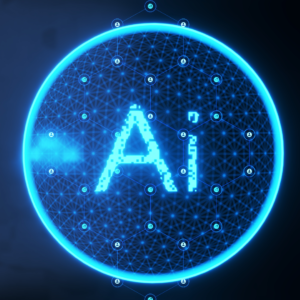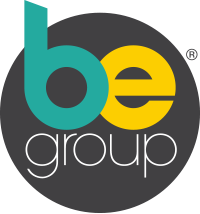It’s a Double-Edged Sword Using AI in Recruitment: Is AI Filtering Out the Best Job Applicants?
 Recruitment is a fast-evolving world, and AI is increasingly being used for things like screening resumes to predicting candidate success. Artificial intelligence promises efficiency and precision. However, while AI can enhance the recruitment process, it also raises significant concerns about inadvertently filtering out the very talent we seek. Let’s take a closer look at how AI might be missing the mark and what we can do to ensure we’re not overlooking the best candidates.
Recruitment is a fast-evolving world, and AI is increasingly being used for things like screening resumes to predicting candidate success. Artificial intelligence promises efficiency and precision. However, while AI can enhance the recruitment process, it also raises significant concerns about inadvertently filtering out the very talent we seek. Let’s take a closer look at how AI might be missing the mark and what we can do to ensure we’re not overlooking the best candidates.
AI in the Recruitment Process
With a massive influx of job applications, AI-powered tools have transformed how recruiters handle the process. With algorithms designed to scan resumes, assess qualifications, and even conduct initial screenings, AI can process information faster and more consistently than any human recruiter. This efficiency is especially valuable for handling high volumes of applications and streamlining the hiring process.
Benefits can include:
Speed and Efficiency. AI can review hundreds of resumes in a fraction of the time it would take a human.
Consistency. Algorithms apply the same criteria to every applicant, reducing the risk of bias in initial screenings.
Data-Driven Insights. AI can analyze patterns and trends in successful hires, helping refine job descriptions and recruitment strategies.
The Drawbacks – Are We Missing Out on Top Talent?
Despite its advantages, AI in recruitment isn’t foolproof. Here are some ways AI might inadvertently filter out excellent candidates:
Over-Reliance on Keywords. Many AI systems rely heavily on keyword matching. This can lead to qualified candidates being overlooked if their resumes don’t use the exact language or terminology specified in the job description. Talented individuals might use different phrasing or language, which can result in their applications being disqualified and never coming in front of a human recruiter.
Lack of Contextual Understanding. AI algorithms often struggle with understanding the context and nuances of a candidate’s experience. For example, a non-traditional career path or a unique skill set might not fit neatly into predefined categories, leading to potentially valuable candidates being dismissed.
Bias in Training Data. AI systems learn from historical data, which can reflect and perpetuate existing biases. If past hiring decisions were biased, the AI could unintentionally reinforce these biases, such as favoring candidates from certain educational backgrounds or geographical locations.
Inadequate Soft Skills Assessment. While AI excels at evaluating technical skills and qualifications, it often falls short in assessing soft skills like communication, leadership, and cultural fit. These are crucial for many roles and can be the deciding factor between two equally qualified candidates.
By combining the strengths of AI with thoughtful human oversight and a commitment to fairness, the technology can be leveraged to find and attract the best candidates without compromising on quality or diversity.
The Importance of a Human Recruiter’s Role
Relationship Building. Human recruiters excel at building relationships with candidates, understanding their motivations, and assessing cultural fit.
Decision-Making. While AI can provide data-driven insights, human recruiters should make final hiring decisions, considering the holistic view of each candidate.
Candidate Experience. Human recruiters can ensure a positive candidate experience, addressing concerns, and providing feedback that AI systems cannot.
Can a Hybrid Screening Process Work?
What AI Can Do Effectively
Initial Filtering. Use AI to filter out applications that don’t meet the basic criteria, such as minimum qualifications or specific skills. This reduces the volume of resumes human recruiters need to review.
Skill Matching. AI can match candidates’ skills with job requirements, flagging those who best fit the technical aspects of the role.
The Human Touch
Deep Dive Analysis. Human recruiters should review AI-filtered candidates to assess soft skills, career progression, and overall potential.
Contextual Understanding. Evaluate the context behind a candidate’s experience and qualifications, something AI may miss.
Personalized Outreach. Human recruiters use insights to tailor communication and outreach strategies, making them more relevant and engaging for candidates.
Personal Touch. Human recruiters handle critical stages of the candidate journey, such as interviews and final assessments, to provide a personalized experience and address any specific concerns.
Human recruiters that integrate AI with their own expertise offers a powerful combination of efficiency and personal touch. This synergy ensures a more efficient, effective, and inclusive recruitment process, ultimately leading to better hiring outcomes and a positive candidate experience.
Contact us to discuss how we can help in your recruitment process!
